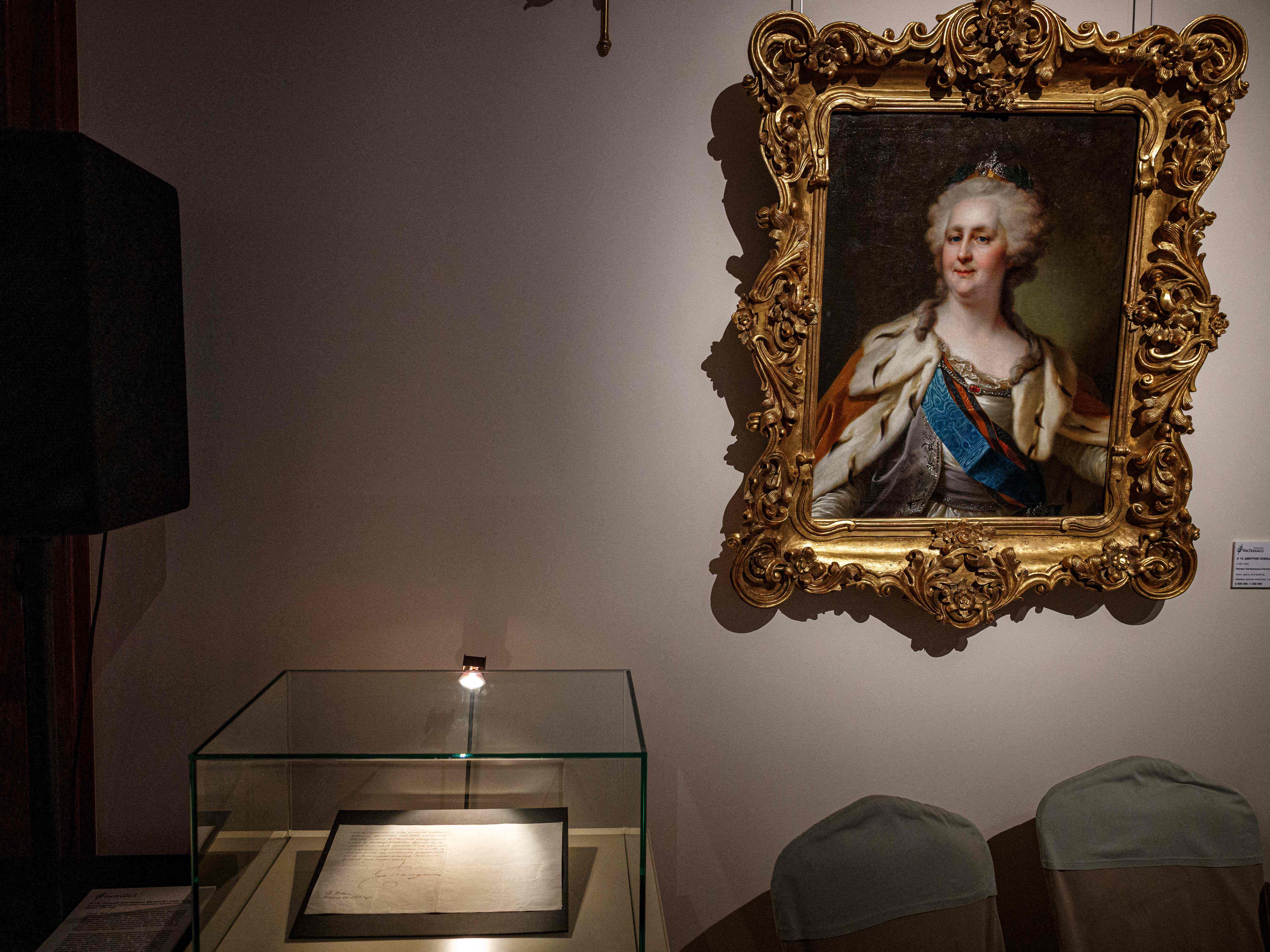1787 letter from Catherine the Great shows she backed inoculations: ‘They should be common everywhere’
Up for auction in London this week, letter extols virtues of vaccination against smallpox in 18th century Europe

Your support helps us to tell the story
From reproductive rights to climate change to Big Tech, The Independent is on the ground when the story is developing. Whether it's investigating the financials of Elon Musk's pro-Trump PAC or producing our latest documentary, 'The A Word', which shines a light on the American women fighting for reproductive rights, we know how important it is to parse out the facts from the messaging.
At such a critical moment in US history, we need reporters on the ground. Your donation allows us to keep sending journalists to speak to both sides of the story.
The Independent is trusted by Americans across the entire political spectrum. And unlike many other quality news outlets, we choose not to lock Americans out of our reporting and analysis with paywalls. We believe quality journalism should be available to everyone, paid for by those who can afford it.
Your support makes all the difference.A letter written by Russian empress Catherine the Great extolling the virtues of vaccination against smallpox is set to go up for auction in London on Wednesday.
The letter was put on public display in Moscow by auction house MacDougall’s on 18 November along with a portrait of the German-born Russian ruler. Both the letter and the painting will remain in a gallery in Moscow till 30 November before they are auctioned in London.
The auction house said that the letter and the painting together are estimated to be worth between £800,000 and £1.2m.
The letter, dated 20 April 1787, is addressed to a Russian army officer, Count Piotr Aleksandrovich Rumiantsev, instructing him about inoculating against smallpox in parts of present-day Ukraine.
“Count Piotr Aleksandrovich, among the other duties of the Welfare Boards in the Provinces entrusted to you, one of the most important should be the introduction of inoculation against smallpox, which, as we know, causes great harm, especially among the ordinary people,” the empress wrote.
“Such inoculation should be common everywhere, and it is now all the more convenient, since there are doctors or medical attendants in nearly all districts, and it does not call for huge expenditure,” the letter added. The letter also included detailed directions on how to carry out the inoculation drive as well as how to cover the expenses incurred in doing so.
Smallpox epidemics were still severe in 18th century Europe and the task of inoculating Catherine the Great’s empire was meeting with resistance on the ground. It involved a technique known as variolation, which involved deliberately infecting the patient using dried smallpox scabs. The recipient would experience a mild case of the disease and then retain immunity thereafter.
The ruler, who was reportedly the first person to be inoculated in this way against smallpox in Russia, had already been vaccinated for 20 years at the time of writing the letter.
Speaking to reporters virtually on Thursday, historian Oleg Khromov said that the empress had got inoculated against the disease by an English doctor. She was injected with a sample from a child, who was later rewarded with a title. Mr Khromov said that the letter is “unique, especially given this situation we are all in”.
Catherine the great was Russia’s longest reigning female ruler and occupied the throne between 1762 and 1796.
Like in the 18th century, there has been resistance to vaccinations in Russia during the Covid-19 pandemic as well.
“In today’s conditions, we should be very proud of Catherine,” Yekaterina MacDougall, the auction house’s co-director and a Russian art expert, told reporters during a press viewing on Thursday, reported the AFP news agency.
While Russian president Vladimir Putin has taken the homegrown vaccine Sputnik, there has been hesitancy to vaccines among the Russian population.
Only 43.5 per cent of the Russian population has been vaccinated as of 28 November. Despite a fall in infection numbers, the country’s daily average number of deaths remains close to an all-time high.
Join our commenting forum
Join thought-provoking conversations, follow other Independent readers and see their replies
Comments